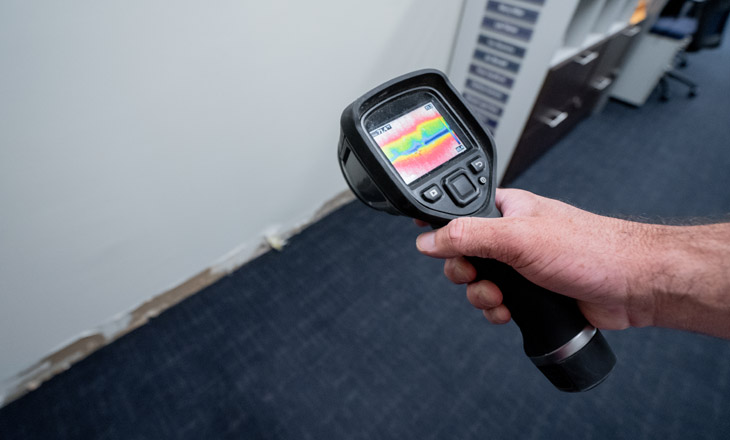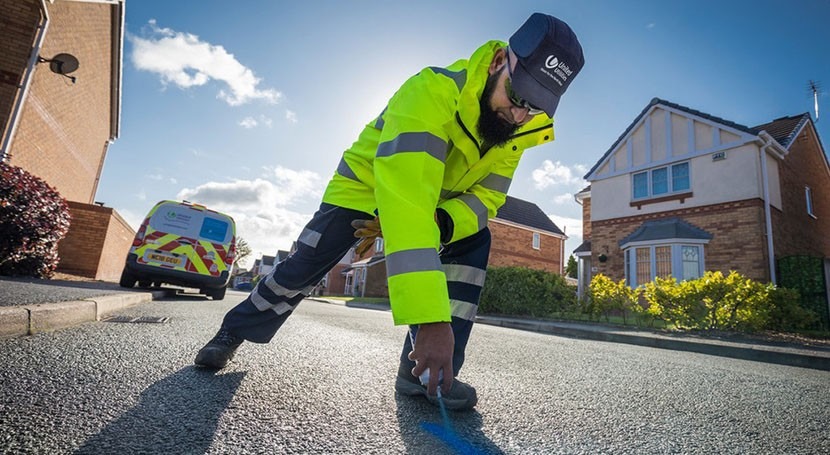Cutting-edge Solutions for Early Discovery of Water Leaks in Structures and Facilities
From advanced leak detection innovations to the implementation of IoT sensing units for real-time surveillance, the landscape of leakage avoidance is advancing swiftly. Automated water flow analysis systems are reshaping exactly how leakages are determined and attended to, paving the method for an aggressive strategy to water leakage discovery.
Advanced Leakage Discovery Technologies
Advanced leakage detection modern technologies, furnished with cutting-edge sensing units and algorithms, play a critical role in promptly determining and determining water leaks in numerous setups. Electromagnetic sensing units can identify modifications in electromagnetic areas caused by water, using yet another layer of leakage detection capacity.

IoT Sensors for Real-Time Monitoring
In the realm of contemporary water leakage discovery, the integration of IoT sensors for real-time surveillance stands for a pivotal innovation in enhancing positive leakage discovery capacities. These sensors provide constant tracking of water supply, giving real-time data on water flow rates, pressure variations, and temperature modifications. By leveraging IoT modern technology, these sensing units can identify even the smallest anomalies in water usage patterns, allowing very early recognition of prospective leakages prior to they intensify right into significant problems.
IoT sensing units transfer data to a centralized platform, where advanced algorithms analyze the information and generate notifies or notices when irregularities are discovered. This real-time tracking ability enables homeowner or center managers to quickly address leaks, decreasing water damages, minimizing repair service expenses, and conserving water resources.
In addition, IoT sensing units can be incorporated with structure monitoring systems, permitting automatic responses to detected leakages, such as closing off water valves or turning on pumps to alleviate the effect of leaks. On the whole, the application of IoT sensors for real-time surveillance substantially improves the efficiency and performance of water leak discovery in buildings and infrastructure.
Artificial Intelligence Algorithms for Leakage Forecast

One key advantage of making use of artificial intelligence for leak prediction is its capacity to constantly learn and boost its precision in time. As more information is gathered and fed into the formula, it can fine-tune its forecasts and adjust to altering conditions, ultimately increasing the reliability of leakage detection systems.
Moreover, artificial intelligence formulas can assist in identifying refined signs of leakages that may go undetected by conventional surveillance techniques. water leak detection. By analyzing intricate data collections in real-time, these algorithms can give early cautions and notifies, permitting for timely treatment and precautionary upkeep to mitigate possible water damage and connected look at here now costs
Using Thermal Imaging for Leakage Detection
Thermal imaging innovation offers an appealing strategy for finding water leakages in various systems and facilities. By making use of infrared radiation and temperature variations, thermal imaging electronic cameras can identify concealed leakages that are not conveniently visible to the naked eye. When water gets away from pipes or structures, it commonly changes the temperature of the surrounding location, developing temperature differentials that thermal cameras can capture. These temperature irregularities are after that converted into noticeable photos, highlighting the exact location of the leak.
One of the key advantages of thermal imaging for leak detection is its non-intrusive nature. Unlike conventional methods that may require getting into walls or floors to locate leaks, thermal imaging allows for non-destructive screening. This not just conserves time and lowers prices however also decreases disruption to the structure or facilities being examined. Furthermore, thermal imaging can swiftly scan large areas, giving a thorough review of prospective leak sources in a my sources prompt way. In general, making use of thermal imaging technology boosts the effectiveness and accuracy of water leakage discovery, making it an important tool for keeping the stability of buildings additional reading and infrastructures.
Automated Water Flow Evaluation Solutions
How can computerized water flow analysis systems change the discovery and management of leakages in different systems and infrastructures? Automated water circulation analysis systems offer an aggressive technique to leakage detection by continuously keeping track of water flow rates and patterns. By developing standard data, these systems can promptly determine discrepancies that might suggest a leak, enabling prompt treatment to avoid comprehensive damages.
These systems make use of sophisticated algorithms to examine real-time information and supply immediate notifies when abnormalities are identified, permitting speedy action to be taken. Additionally, automatic water circulation analysis systems can be integrated with structure management systems or IoT platforms, boosting total effectiveness and making it possible for remote monitoring abilities.
Furthermore, the data accumulated by these systems can be made use of for anticipating upkeep objectives, aiding to recognize possible weak factors in the framework prior to leakages happen. Generally, the application of automatic water flow analysis systems can significantly improve leakage discovery and monitoring techniques, inevitably bring about set you back financial savings, minimized water wastefulness, and raised sustainability in structures and facilities.

Conclusion
Finally, the assimilation of advanced leakage detection innovations, IoT sensors, machine knowing algorithms, thermal imaging, and automatic water circulation evaluation systems offers innovative options for very early discovery of water leakages in buildings and infrastructure. These innovations make it possible for real-time surveillance, forecast of leakages, and effective discovery techniques to protect against water damages and wastefulness. Carrying out these options can assist in preserving the stability and sustainability of water systems in various settings.
Comments on “The Relevance of Regular Water Leak Detection for Long-Term Home Security”